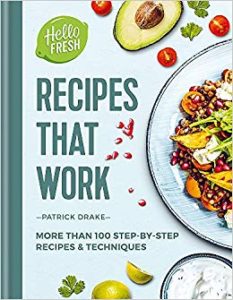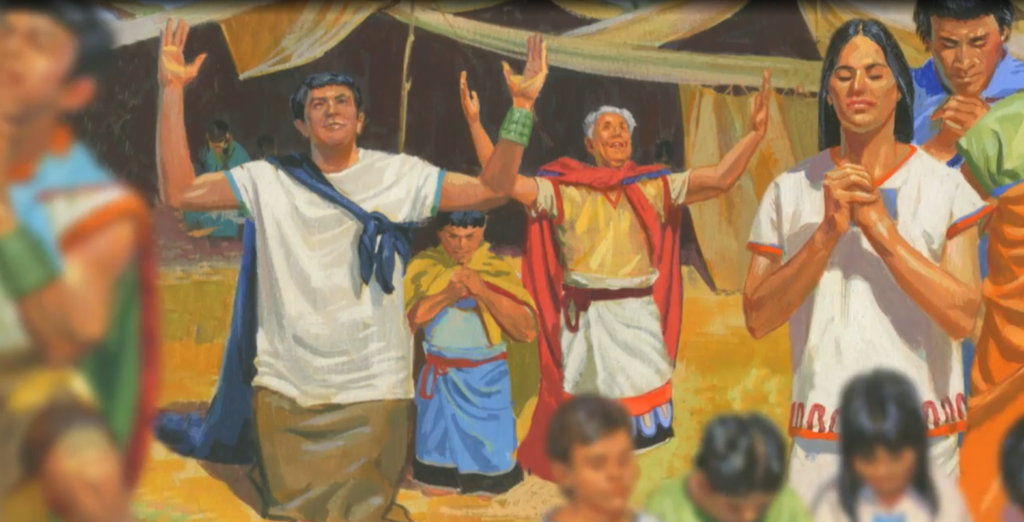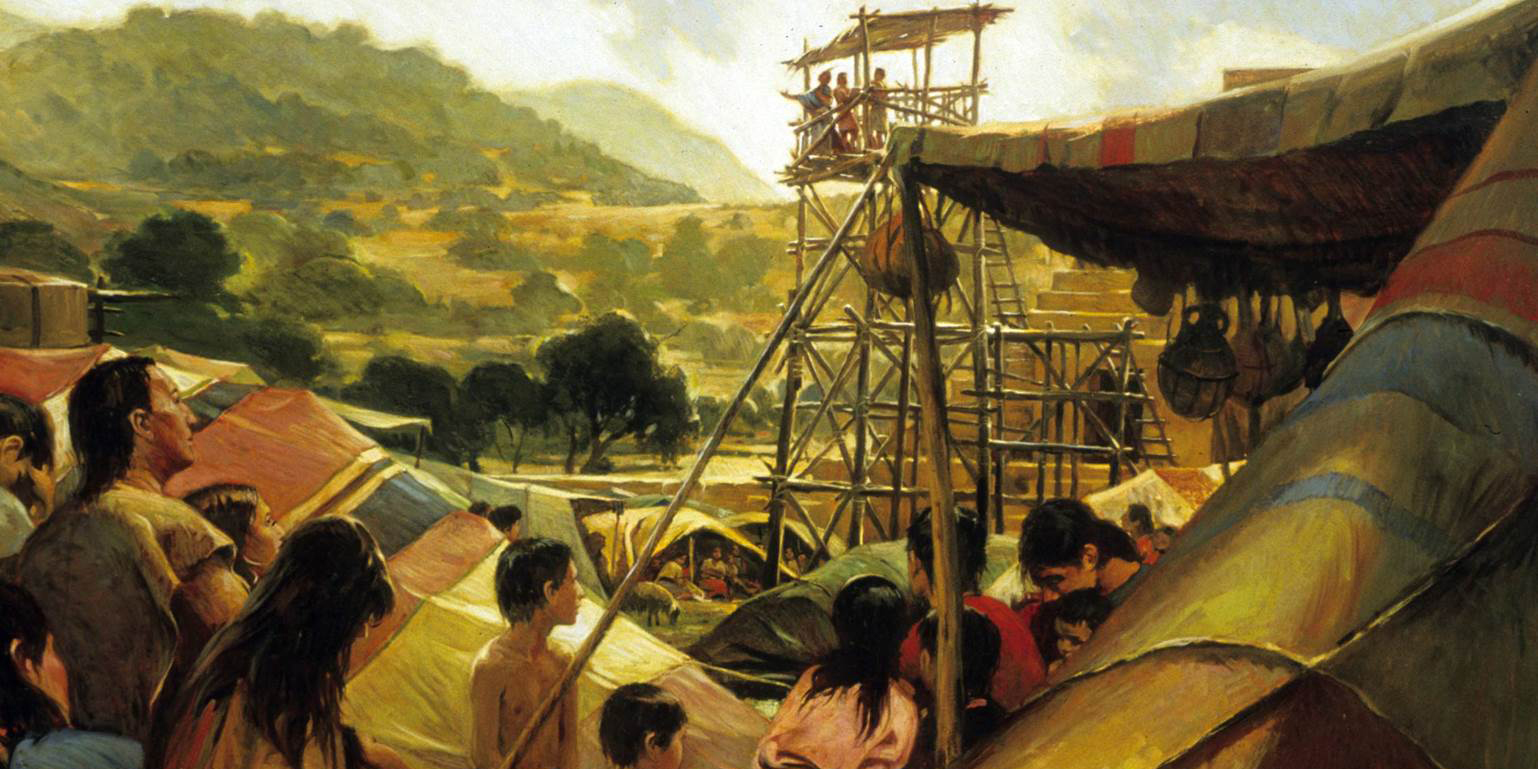To accompany your Come Follow Me study for April 29-May 5
In addition to reading Mosiah 4-6, you may enjoy watching the following videos:
You will also enjoy looking at the following related chapter from the Book of Mormon Institute Student Manual:
If you would like a Kahoot game related to this material which you could use for personal study or use with your family or your class, click here: https://create.kahoot.it/share/mosiah-4-6/bf71daec-f0ad-46f8-b274-cceb7dc2cf27 . To use it with a group, after clicking on this link, you will need to log into Kahoot, creating a free account if you have not done so previously, then click on the blue “Start” button. Some of the Kahoot questions may presuppose that the player has read through the suggested answers to the following Points to Ponder and at least has browsed the Institute student manual as well.
Points to Ponder in Mosiah 4-6
For each chapter in Mosiah 4-6, tell which was your favorite passage and why. Be prepared to explain what principle can be learned from that passage and give examples of how it can be applied in our lives.
1. Chapter 4
2. Chapter 5
3. Chapter 6
4. How can you know for sure if you have been forgiven for past transgressions? What passage from this week’s reading is most helpful in answering this?

5. What passage in Mosiah 4 might be particularly helpful to those who are troubled and shaken in their faith because of some tragedy in their lives or because of some change in Church policy which they don’t understand?

6. Would it be a logical corollary of 4:11‑12 to suggest that those who are not experiencing “exceedingly great joy” may still have unforgiven sins? Why do you believe as you do?
7. What do you gather that King Benjamin might say to someone who claimed he was “saved” on April 10, 2020, at 10:00 in the morning?

8. Why is it that one who constantly retains a remission of his sins consequently grows in the knowledge of God? (4:12) Doesn’t he still have to study?
9. Why does Benjamin’s “recipe” for retaining a daily remission of sins seem different in 4:11‑12 from what he outlines in 4:26? Could you choose either recipe and get satisfactory results?

10. When Benjamin suggests that the righteous will not suffer their children to transgress the laws of God and fight and quarrel and serve the devil, is he condoning force, where necessary, or is he simply optimistic that with proper teaching children will naturally do what is right? (4:14)

11. What is the application of Benjamin’s message concerning beggars with regard to each of the following situations? (4:16‑27)

a. A man approaches you at a bus station and says he hasn’t eaten for two days and asks $5 for a meal and an additional $25 which he’ll send you by mail when he gets a job.
b. You get a letter in the mail inviting you to donate to earthquake victims in Morocco or the flood victims in Libya.
c. The Young Men and Young Women of your ward are selling cookies to pay for their share of the cost of a multi-stake youth encampment, and you have already bought cookies from three of them when a fourth young man knocks on your door.
d. You go to a Third World country and meet 57 poor women and children, all of whom want you to buy something from them or give them a few coins to buy something to eat.

12. What comfort does Benjamin have for someone who is run down physically and mentally by the stress of going to school, working, serving in two Church callings, involvement in community activities, participating in the ward choir, maintaining some kind of social life, and keeping up on his genealogy, food storage, journal keeping, and missionary activity?

13. Aren’t verses 29 and 30 of Mosiah 4 a little depressing? Explain.

14. How did the Nephites know King Benjamin was telling them the truth? How does this compare to the way we normally suggest a testimony comes? (5:2)
15. How many similarities do you see between the gospel covenant and a marriage covenant? How are we children of Christ rather than of the Father?

16. What additional insight do we get by combining Mosiah 5:13 with John 17:3?

17. King Benjamin’s sermon had a powerful effect on his hearers and has inspired generations of readers ever since. What good experiences can you share of having been in meetings with general authorities or having read their words?

Possible Answers to Points to Ponder in Mosiah 4-6
For each chapter in Mosiah 4-6, tell which was your favorite passage and why. Be prepared to explain what principle can be learned from that passage and give examples of how it can be applied in our lives.
1. Chapter 4
Your choice. I might pick v. 27, which reminds us that we aren’t expected to do more than is possible, but that we need to be diligent nonetheless.
2. Chapter 5
Your choice. I might pick v. 13, which teaches that the key to knowing the Lord, which is the key to salvation, is to serve him and come to think like He does.
3. Chapter 6
Your choice. I might pick v. 1, which highlights the importance of record keeping in the Lord’s church.
4. How can you know for sure if you have been forgiven for past transgressions? What passage from this week’s reading is most helpful in answering this?
4:3 indicates that the Nephites were filled with joy and peace of conscience at the time they received a remission of their sins. We are entitled to the same feelings, if our repentance has been adequate.
5. What passage in Mosiah 4 might be particularly helpful to those who are troubled and shaken in their faith because of some tragedy in their lives or because of some change in Church policy which they don’t understand?
Perhaps 4:9, which reminds us that “man doth not comprehend all the things which the Lord can comprehend.” We don’t refuse to enjoy the benefits of electricity or computers just because we don’t fully understand how they work. Why would we want to miss out on spiritual blessings by stubbornly pretending we are smarter than the Lord?
6. Would it be a logical corollary of 4:11‑12 to suggest that those who are not experiencing “exceedingly great joy” may still have unforgiven sins?
Evidently. It may be the result of not having sufficiently humbled oneself before the Lord, acknowledging one’s own comparative nothingness, and turning one’s life over to Him. It doesn’t mean that trials and tribulations are necessarily a sign of unforgiven sin, but it is a promise that even in the midst of those tribulations we can have “an exceedingly great” inner joy in our awareness of God’s love for us.
7. What do you gather that King Benjamin might say to someone who claimed he was “saved” on April 10, 2012, at 10:00 in the morning?
He would emphasize that while one may indeed have had a remarkable spiritual experience at the indicated time and may have achieved a remission of sins at that point, the important thing is not just to obtain but to retain such a remission, as per the instructions he gives in verses 11-12 and 26.
8. Why is it that one who constantly retains a remission of his sins consequently grows in the knowledge of God? Doesn’t he still have to study? (4:12)
Because one who has had his sins remitted is entitled to have the Holy Ghost with him as a constant companion, and the Holy Ghost is a constant source of revelation and enlightenment. Study is an important element in learning, but it’s not the only element. The scriptures tell us to “seek learning by study, and also by faith.” (D&C 88:118.
9. Why does Benjamin’s “recipe” for retaining a daily remission of sins seem different in 4:11‑12 from what he outlines in 4:26? Could you choose either recipe and get satisfactory results?
These are just two different descriptions of the same thing. One who is filled with the love of God, as mentioned in v. 12, will, as v. 16 indicates, have a desire to succor those that stand in need of succor, which is the emphasis of v. 26. One who starts at the “giving to the needy” part of the cycle will find his joy and his love of God increasing, while one who starts at the joy and love of God position will be prompted to be ever more charitable, in one eternal round.
10. When Benjamin suggests that the righteous will not suffer their children to transgress the laws of God and fight and quarrel and serve the devil, is he condoning force, where necessary, or is he simply optimistic that with proper teaching children will naturally do what is right? (4:14)
I would guess that Benjamin would teach and encourage but not forcibly compel his children to serve each other. But he may well condone compulsion to prevent their injuring each other and committing active sins. In the Old Testament we find that the priest Eli got into great trouble with the Lord when he failed to restrain his adult sons from committing serious sins, even though Eli was 98 years old at the time!
11. What is the application of Benjamin’s message concerning beggars with regard to each of the following situations? (4:16‑27)
a. A man approaches you at a bus station and says he hasn’t eaten for two days and asks you for $5 for a meal and an additional $25 which he’ll send you by mail when he gets a job.
b. You get a letter in the mail inviting you to donate to the earthquake victims in Morocco or flood victims in Libya.
c. The Young Men and Young Women of your ward are selling cookies to pay for their share of the cost of a multi-stake youth encampment, and you have already bought cookies from three of them when a fourth young man knocks on your door.
d. You go to a Third World country and meet 57 poor women and children, all of whom want you to buy something from them or give them a few coins to buy something to eat.
Benjamin’s emphasis is on what we do with those who seriously need our temporal assistance in order to maintain life. See v. 16, for example, in which the case in point is one in which if we deny the beggar he may starve to death. He is not really discussing what to do if a tenth Girl Scout knocks on your door hoping you’ll buy more cookies. Still, in the spirit of love for one’s fellow man, I’m guessing Benjamin would give to the man in case “a” above, if he had the ability. He’d probably give a generous fast offering as well as contribute to the Church’s humanitarian aid fund in hopes that it would in part help the earthquake victims in Morocco or flood victims in Libya. He may also from time to time give directly to such causes. He’d buy cookies in case “c” periodically and would give selectively to the poor folks in case “d,” recognizing, however, that as 4:27 points out, it is not required to do more than one is able and that all things must be done in order.
12. What comfort does Benjamin have for someone who is run down physically and mentally by the stress of going to school, working, serving in two Church callings, involvement in community activities, participating in the ward choir, maintaining some kind of social life, and keeping up on his genealogy, food storage, journal keeping, and missionary activity?
See 4:27
13. Aren’t verses 29 and 30 of Mosiah 4 a little depressing? Explain.
Perhaps “sobering” would be a better word. They aren’t supposed to depress us but to encourage us to do our best and avoid the traps laid for us by the evil one. As Benjamin said earlier, it is our privilege to always rejoice if we are living the best we know how.
14. How did the Nephites know King Benjamin was telling them the truth? How does this compare to the way we normally suggest a testimony comes? (5:2)
The people indicated they knew because of the change which had occurred in their hearts. We often talk about a “burning in the bosom” or a “strong feeling” as indicators of a testimony, but the changed disposition whereby one desires to do only good and avoid evil would surely need to be added to the list of descriptors of the effects of the Holy Spirit, by which testimony comes.
15. How many similarities do you see between the gospel covenant and a marriage covenant? How are we children of Christ rather than of the Father?
For starters, in both cases promises of fidelity are made, the “bride” gets a new name, and a new level of intimacy becomes possible. We continue to be children of God the Father, of course, as He created our spirits. But we also become children of Christ, by adoption, through being “born again.”
16. What additional insight do we get by combining Mosiah 5:13 with John 17:3?
If life eternal depends on coming to know the Lord, and if knowing Him depends on our serving Him, it follows that only by serving Him can we prepare ourselves for eternal life—not just going through the motions, not by just sitting passively in meetings, but by learning to live as He lives, think as He thinks, and serve as He serves.
17. King Benjamin’s sermon had a powerful effect on his hearers and has inspired generations of readers ever since. What good experiences can you share of having been in meetings with general authorities or having read their words?
Your choice. I personally have been richly blessed to have known, worked with, even lived with, listened to, sat on the stand with, given talks with, knelt in prayer with, been interviewed by, and been inspired by a variety of apostles and members of the Seventy over the past 60+ years. I have loved listening to them speak and reading the written record of their talks. My life will be forever better for these unforgettable experiences.
